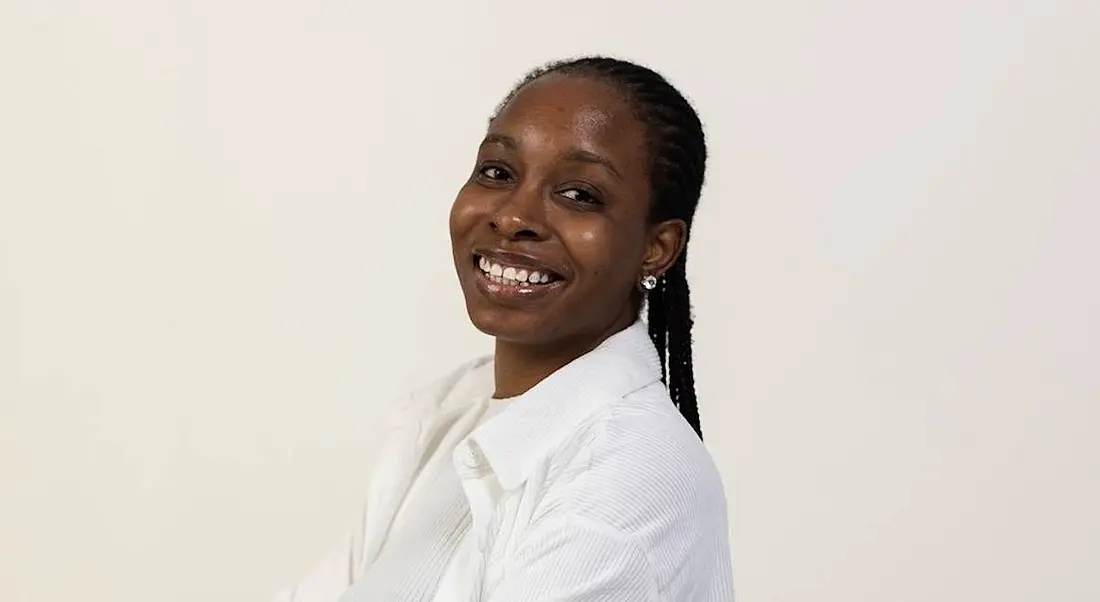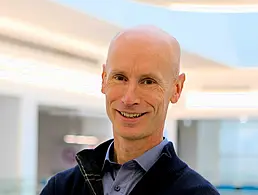Azizat Oluwabukola Alimi discusses her day to day in Bristol Myers Squibb’s graduate programme and why the sense of purpose in a biopharma career is ‘unparalleled’.
Azizat Oluwabukola Alimi says that when growing up, she believed there were only two academic pathways for her – maths or science.
After deliberating with her guidance counsellor, she decided on science and began pursuing a bachelor’s degree in chemical and pharmaceutical science at Dublin City University. It was this experience in college that inspired her to go into biopharma.
“After experiencing the world of science through my degree, I realised that I wanted to work in the biopharma industry and doing an internship with Bristol Myers Squibb (BMS) at the time further reinforced that decision,” she says.
Here, Alimi discusses her experience at BMS and why she returned to the company as a graduate.
What drew you to BMS when you were seeking work as a graduate?
While studying at university I completed a six-month internship at the BMS External Manufacturing business unit in Blanchardstown Corporate Park. I really enjoyed the work and the sense of community at the company. As an intern with no prior experience in the pharmaceutical industry, I wasn’t sure what to expect coming in but as soon as I started, I felt so welcomed and valued as an employee.
They do say the best thing to give a human is to make them feel valued because they never forget how you made them feel. That was exactly what happened in my case because as soon as I completed my internship, I told everyone that cared to listen – my family, friends and even acquaintances – that my ambition is to go back to BMS.
Another thing that stood out to me was the evidence of the effort that goes into designing the graduate programme. I really liked its structure and that I would be able to gain nine months of experience in three departments of my choosing. It felt like my opinion counted, which was very important to me. This made me feel like even if I was on a graduate programme, I would be able to take the reins and be given responsibility.
What expectations did you have before you began the programme?
Before starting the graduate programme, I had anticipated a challenging and dynamic work environment. I expected exposure to cutting-edge research, collaboration with experts, experience in the industry, and opportunities for professional growth and I was not disappointed.
After a few weeks of starting on the team, I was constantly asked to contribute my opinion in discussions and my manager was always looking for ways for me to grow professionally. Whenever the opportunity came to put myself out there, he would always push me forward and give me the confidence I needed. I also got to work on projects with senior colleagues, thereby gaining expertise from their experience.
What duties and responsibilities were you given initially?
I mainly started off with trainings and getting signed up on instruments. I started my first lab training on pipetting and how to accurately pipette, I then learnt how to use the solo variable pathlength extension instrument and I was given a chance to practise the knowledge I had gained whenever samples that needed testing for concentration came into the PA lab. After I had mastered that, I received the opportunity to learn how to operate the capillary electrophoresis instrument, which is often used to determine the purity of a sample. I am also working on a freezer project on the lab to optimise the way we store samples. I have received such a diverse experience, and I am forever grateful for that.
Did the scope of your work change as the programme progressed?
I am currently participating in the first rotation and have taken on new tasks and responsibilities to support the team. I have progressed to running samples which is a very valuable skill to have in the biopharma industry. My way of thinking has also changed because I now understand the importance of the work I do. This makes me put my best into any task I am assigned.
‘The sense of purpose derived from knowing your work could positively impact countless lives is truly unparalleled’
Can you describe a typical day in your role?
A day in my role varies depending on what testing needs to be done and whether I am working off-site or remotely. It is dynamic and multifaceted. The day typically begins with reviewing and analysing scientific literature and data relevant to ongoing projects. This involves staying updated on advancements in the field and identifying key insights to inform research strategies. Collaborating with cross-functional teams, brainstorming sessions and project meetings to discuss findings and plan next steps.
Throughout the day, I conduct experiments, perform data analysis and interpret results to draw conclusions and make recommendations. This may involve using various scientific techniques and technologies to investigate drug candidates or study biological mechanisms.
In addition to hands-on laboratory work, I spend time writing reports, preparing presentations, and communicating findings to colleagues. I often go to catch-up meetings with other graduates just to have a chat and get an insight into what others are doing. These meetings tend to be fun and lively and are always an important part of my day.
Overall, a day in my life at BMS is fast-paced, intellectually stimulating and filled with opportunities to contribute to cutting-edge research that has the potential to improve patient outcomes.
How do your responsibilities compare to more experienced employees’?
My responsibilities are not all that different, which I am grateful for. I would hate to be given all the easy work and thereby not learn as much as I could. I prefer to take on demanding and thought-provoking work that involves applying myself and my skills.
Why should someone apply to the graduate programme at BMS?
If you’re passionate about science and eager to make a real-world impact, applying to BMS is a transformative choice. I believe it is the perfect opportunity for someone looking for a smooth transition from education to working life.
From personal experience, I can attest to the stimulating environment and supportive community they offer for aspiring scientists. Working alongside industry leaders, you’ll have the chance to contribute to groundbreaking research and witness the direct translation of scientific discoveries into life-changing therapies. The opportunities for learning and growth are abundant, and the sense of purpose derived from knowing your work could positively impact countless lives is truly unparalleled.
Find out how emerging tech trends are transforming tomorrow with our new podcast, Future Human: The Series. Listen now on Spotify, on Apple or wherever you get your podcasts.




